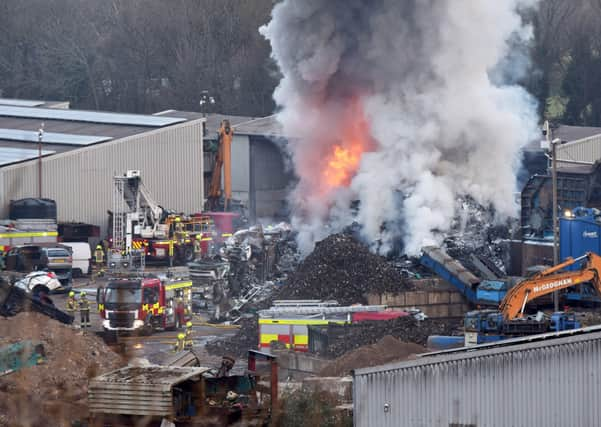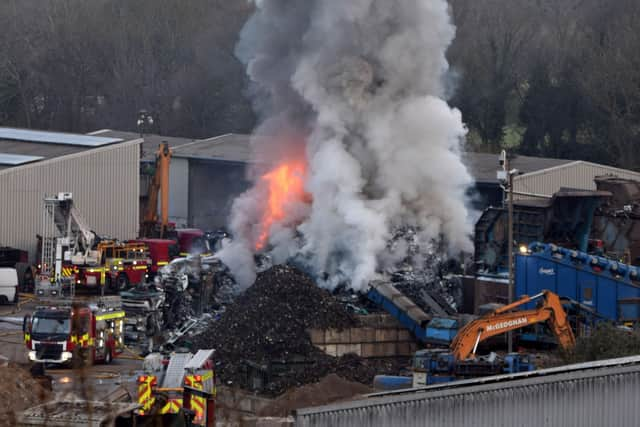Likely cause of Lewes recycling site fire revealed


At its height, six fire engines tackled the blaze at Light Bros in Southerham Lane, which started at around 5am on Friday and affected around 250 tonnes of waste metal.
SEE MORE: Serious fire at Lewes recycling site
Plumes of smoke could be seen from the A27 and multiple 999 calls were made by members of the public.
Advertisement
Hide AdAdvertisement
Hide Ad

Residents were warned to keep their windows and doors closed due to the ‘significant amount’ of smoke in the area.
No one was injured.
At just before 11am, the incident was scaled down and the site was handed back to its owners.
Light Bros said ‘prompt action’ by firefighters, along with retaining fire walls, ensured that the incident was contained to a stockpile.
“The fire was brought under control and the site is back to full operation,” the company said in a statement on Friday.
Advertisement
Hide AdAdvertisement
Hide Ad“ESFRS have now left the scene and Light Brothers would like to pass on thanks for their skill and expertise which resulted in the extremely fast containment of the situation.”
The fire service has now said that the probable cause of the fire was a discarded lithium battery that ignited.
It has previously urged people to recycle dead batteries using specialist battery recycling services, and to never throw batteries away alongside general rubbish or other recycling.
In a campaign last year, it warned: “Dead batteries thrown away with other waste and recycling are likely to be crushed or punctured once the waste is collected and processed.
Advertisement
Hide AdAdvertisement
Hide Ad“Some battery types in particular, like lithium-ion (Li-ion) and nickel-metal Hydride (NiMH), can ignite or even explode when they’re damaged.
“Once this happens, the batteries can quickly set fire to other materials present in the waste, like paper, leading to serious incidents that put lives at risk.”
According to the Environmental Services Association, lithium-ion batteries alone were thought to be responsible for more than a third of all fires at its members’ recycling and waste facilities in the year to March 2020.